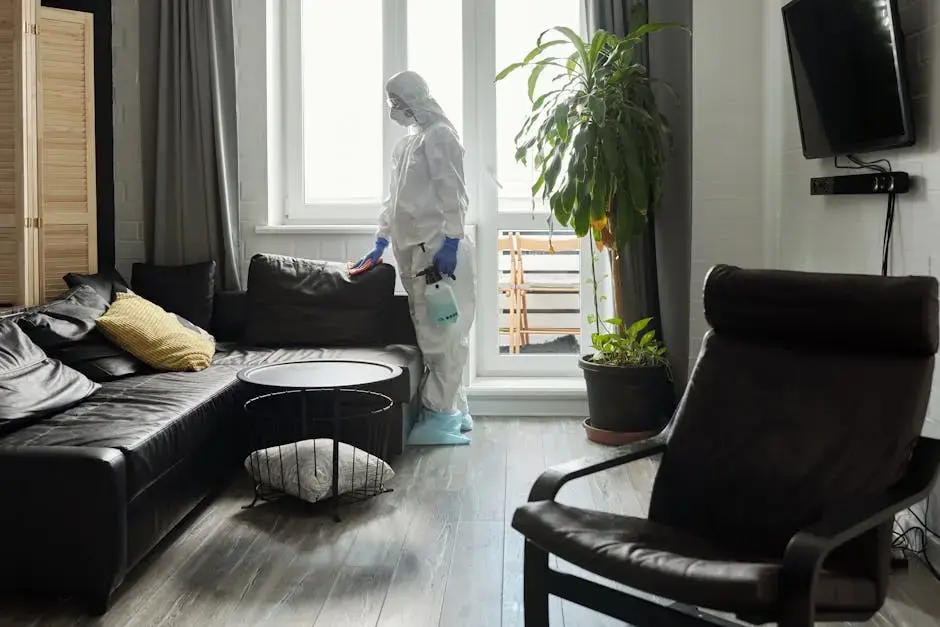Understanding Contamination Control: Keeping New Jersey Safe
- Диана Богдан
- Jun 15, 2025
- 4 min read
Contamination control is essential in maintaining a safe and healthy environment for everyone living in New Jersey. With its vibrant cities, beautiful landscapes, and thriving industries, the state faces unique challenges in managing and controlling contamination. In this blog, we'll explore the key aspects of contamination control and how they contribute to the safety and well-being of communities across New Jersey.

What is Contamination Control?
Contamination control refers to the practices and procedures used to prevent, reduce, and eliminate contaminants from the environment. This includes measures aimed at controlling biological, chemical, and physical contamination across various sectors such as food safety, healthcare, and environmental protection.
At its core, contamination control is about maintaining environmental integrity, which is crucial for human health and ecosystem stability. It involves systemic approaches like regular monitoring, sanitation, and regulatory enforcement to ensure that contamination levels remain within safe limits. The process addresses the entirety of the contaminant lifecycle, from production and release to management and eventual elimination. By focusing on strategic control points, this field works tirelessly to safeguard both public health and the future of our natural surroundings.
The Challenges Faced by New Jersey
New Jersey, with its dense population and diverse industries, faces several unique challenges in contamination control. The state must address pollution from urban areas, industrial waste, and agricultural run-off, all while continuing to grow and develop sustainably.
One of the significant challenges is balancing development with environmental protection. New Jersey's robust industrial sector, which includes chemical plants and manufacturing hubs, contributes to air and water pollution risks. Additionally, urban pollution from automobiles and residential waste adds another layer of complexity. The state's agricultural landscape, though vital for local food production, is a potential source of chemical runoff, which can affect nearby water bodies. These challenges require a coordinated response that involves stricter regulations, innovative waste management solutions, and an empowered citizenry ready to support conservation efforts.
Another challenge that New Jersey encounters is the restoration of contaminated sites, often termed as 'brownfields'. These areas have been previously used for industrial purposes and are contaminated by hazardous waste or pollution. Addressing such sites not only poses technical challenges but also demands significant financial investments and community cooperation. Furthermore, adapting to climate change adds an additional layer of complexity, as rising sea levels and unusual weather patterns can exacerbate pollution issues. Developing resilient systems to cope with these changes is essential for maintaining New Jersey's ecological balance.
Measures in Place to Control Contamination
To tackle these challenges, New Jersey has implemented various contamination control measures, including strict regulatory standards, advanced waste treatment facilities, and the promotion of environmentally friendly practices. These efforts help to minimize the risk of contamination and ensure a healthier environment for all.
Key among New Jersey's strategies is its commitment to regulatory enforcement. State-sponsored initiatives require industries to adhere to strict environmental standards, challenging them to minimize waste and prioritize sustainable practices. The use of advanced waste treatment facilities illustrates the state's focus on innovation, where technology is harnessed to treat and dispose of waste responsibly. Moreover, New Jersey invests in renewable energy sources, promoting solar and wind power to cut down on emissions significantly. Such initiatives not only diminish environmental footprint but also set precedence for other states aiming to follow a similar path in contamination control.
The Role of Community Awareness and Participation
Community involvement is crucial for effective contamination control. Public education campaigns, local clean-up initiatives, and partnerships with local organizations play an essential role in raising awareness and encouraging residents to participate in keeping their environment safe and clean.
New Jersey's approach to contamination control emphasizes the significance of community participation in its environmental conservation efforts. Educational programs play a crucial role in this, effectively informing residents about the impacts of pollution and how small changes in daily practices can lead to significant environmental benefits. These programs often enroll schools and local organizations to broaden the reach. Encouraging active participation gives residents a sense of ownership and responsibility for their local environment, strengthening efforts to avoid and respond to contamination events.
Local clean-up drives and green initiatives are key components of engaging the community in contamination control. These efforts foster a spirit of collaboration and communal pride, empowering citizens to take charge of their surroundings. By seeing tangible results, whether cleaner streets or litter-free parks, residents become more invested in sustaining these improvements. Community-led clean-up efforts often lead to larger movements that tackle pollution on a broader scale, creating lasting changes in local environmental practices and policies. Such endeavors not only beautify the community but strengthen the very fabric of community cohesion.
Working Together for a Safer New Jersey
Ensuring effective contamination control in New Jersey is vital for protecting the health of its residents and preserving its natural resources. By understanding the risks, implementing robust measures, and fostering community awareness, New Jersey can continue to thrive as a safe and healthy place to live. Let's keep working together to maintain a contamination-free environment for future generations. Visit Biodecon LLC and learn how our services can support your contamination control efforts.




Comments